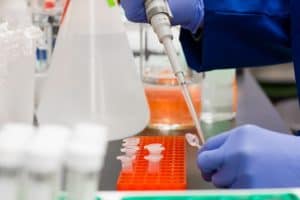US court bars stem cell funding
pharmafile | August 26, 2010 | News story | Sales and Marketing | Obama, Stem cells, US
A US district court has temporarily blocked plans to increase government funding of stem cell research in the country.
The ruling follows a lawsuit by US researchers who challenged human embryonic stem cell research at the National Institutes of Health (NIH) involved the “destruction of human embryos”.
Judge Royce Lamberth granted the injunction after finding that stem cell research undertaken by the NIH, a medical agency partially funded by the government, violated a law that bans the use of federal funds to destroy human embryos.
In March last year President Obama lifted restrictions imposed by his predecessor George W Bush which outlawed any government funding for research on new stem cell lines.
A number of R&D groups have come out against the court’s decision. Richard Bergenstal, MD, president, medicine & science at the American Diabetes Association, said: “This is a major setback for medical research, in particular, research towards a cure for diabetes.
“This decision stands as a roadblock to research that has shown great promise in finding a cure for diabetes and treating its complications.”
Elizabeth H. Blackburn, Ph.D., Nobel laureate and president of the American Association for Cancer Research, said: “We believe the NIH’s human embryonic stem cell research policies are sound, ethical, and responsible.
“It is disconcerting that the scientists who were given the opportunity to pursue important research questions through the investigation of stem cells, not their creation, have now been stopped in their tracks.”
The US Department of Justice will be appealing against the decision this week to lift the court’s injunction.
Ethics of research
Stem cell researchers hope that many chronic diseases such as diabetes, Alzheimer’s and Parkinson’s could benefit from use of the technology.
One element of the research involves the use of embryonic stem cells derived from embryos that have been fertilised in an in vitro fertilisation clinic and then donated for research purposes.
The research process aims at harvesting these cells by utilising their ability to repair localised tissues and organs in chronic and degenerative diseases.
These are ‘pluripotent’ stem cells that can only be amassed in the first 4-5 days of fertilisation and results in the death of the human embryo.
The research has caused political divisions over its use and federal funding, as ‘pro-life’ groups in the US believe the destruction of an embryo at any stage constitutes murder, and are unwilling to indirectly help pay toward it.
Related Content

Sharp invests $100m in US and EU manufacturing and packaging facilities
Sharp Services, a pharmaceutical packaging and sterile manufacturing specialist, has announced investments totalling $100m across …

Moderna doses first US patient in phase 1 trial of mRNA-4106 for solid tumours
The START Center for Cancer Research has dosed the first US participant in Moderna’s phase …

Strategic alliance announced between Recipharm and Exela
Recipharm and Exela have announced that they have entered into an exclusive strategic alliance. The …






